News
Premier Of The Turks And Caicos Islands, Dr. The Honourable Rufus W. Ewing Addresses The Foreign Affairs Committee On Governance In London
Published
10 years agoon
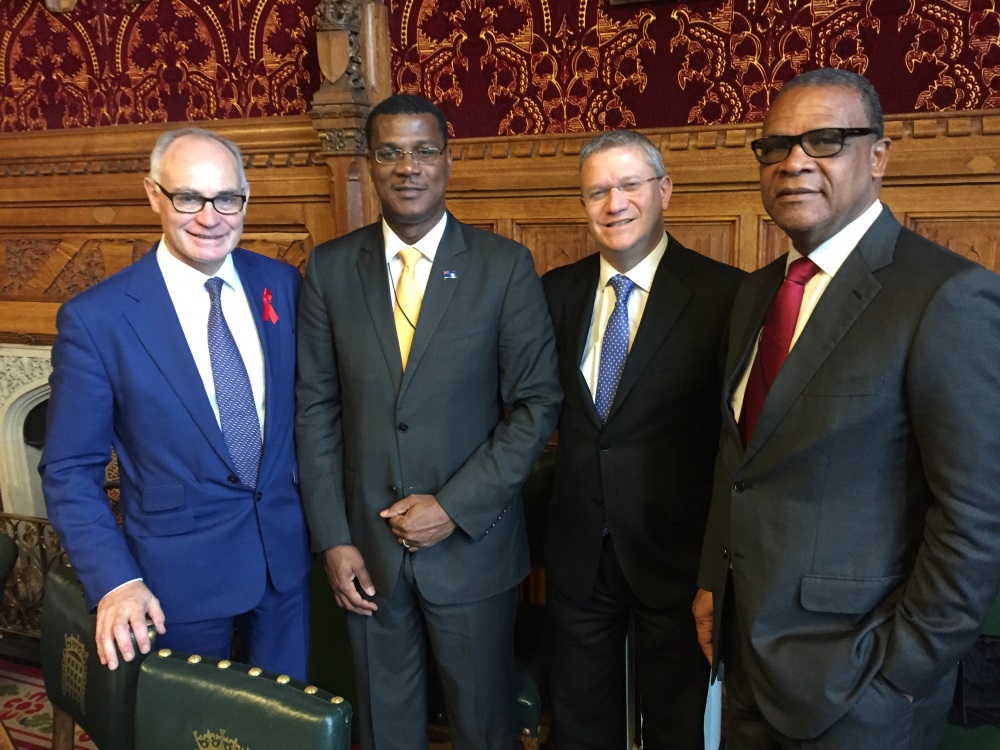
London, United Kingdom, Tuesday December 1, 2015 – The Premier of the Turks and Caicos Islands, Dr. The Honourable Rufus W. Ewing, yesterday, made representation on matters of governance as it relates to the Overseas Territories and particularly, as it relates to the Turks and Caicos Islands.
The address was delivered to members of the Foreign Affairs Committee in the presence of other Overseas Territories Leaders, who are gathered in London this week to attend the Joint Ministerial Conference 2015.
The Premier’s address, which was delivered in part (due to time constraints) but later submitted, read:
“Members of the FAC it gives me great pleasures of address you all here this morning on behalf of the British Overseas Territories on the issue of governance.
“The Overseas territories enjoy a long period of relationship with the United Kingdom Government ranging from Bermuda in the early 1600s to the British Antarctic Territory as recent as 1908.
“The territories have in common the Queen as the head of state who is represented in the territories by a Governor or such person appointed by the FCO whose authority varies across the territories ranging from limited reserve powers in areas of foreign affairs, security and defense to those far reaching powers and responsibilities extending into the internal administrative governance of the territories which often overshadow the roles and responsibilities of locally elected government.
“These governance and administrative arrangements are laid out within each territory’s constitution where the good governance framework also receives its genesis and are refined by subordinate good governance legislations giving birth to good governance bodies.
“Even though each overseas may territory differ greatly from each other in size, population, economy, administrative capacity and level of political maturity, each territory has a right to self determination and self governance based on the settle will of the peoples of each territory and this self determination include the choice to remain a British OT. The British government has the responsibility to ensure that the territories are protected and are provided with a constitutional and governance framework that ensures good governance and supports progressive move towards self governance in whatever form.
“The constitutional construct varies greatly between the overseas territories and the rationalization for such construct seems haphazard and reactionary to circumstance in many instances and not based on the principles of the UK’s responsibility as laid out in the UN Convention and principles of modern democracies and good governance.
“There are many territories who feel strongly that the reserve powers of the governor are too wide in scope and overreaching into the daily executive decisions of the territory. There are many territories who feels that the governor has too much influence in the legislature in addition to veto powers.
“There are many territories who feels that the UK’s persistence as borne in the constitutional construct, to separate politics from governance the territories undermines the ability of locally elected politicians to deliver their political mandate and a shift in decision making powers to the FCO.
“There are many overseas territories who are concerned about not only the reserve powers of their governor but also the method and criteria used for the selection of their governor as this impacts heavily not only on the style of governance but the extent of interference of the governor outside of their constitutional remit.
“Ladies and gentleman I have spoken broadly on governance arrangements and concerns that you may find across the OTs, so I now turn my attention specifically to the Turks and Caicos Islands to highlight such governance concerns.
“The Turks and Caicos Islands as a UK Overseas Territory was administered via its own Governor since 1972 after the Bahamas went independent and in 1976 gain its own constitution that permitted elected ministerial system of governance.
“The Turks and Caicos Islands has had its constitution suspended twice for allegations of maladministration and corruption as was discovered in two commissions of inquiries. There are many including myself who still question the need for suspension of the constitution as a necessity to intervene and correct and weakness in governance as whatever failures there were did not have its origin in the constitution. The elected government of the TCI believe in and embraces the good governance bodies that have been implemented prior to and during the direct rule from the UK, but we are of the view that there are many provisions within the new TCI constitution when combined with the mandates of the good governance institutions stiffles the ability of any elected goverment to govern effectively.
“Governance in the Turks and Caicos Islands is even further controlled by the UK via the new role of a Chief Financial Officer who has decision making and veto powers as it relates to financial management as a condition of the U.K. loan guarantee which will expire in February of this year. The financial legislative framework in the Turks and Caicos outside of the provisions for a CFO has many provisions for safeguarding and ensuring sound financial management and we as an elected government are sufficiently confident that with these systems in place there would be no need for a CFO beyond the timeframe specified.
“There are many concerns related to the current Turks and Caicos Islands Constitution and these concerns were well articulated in the recent report on the TCI Constitution and the subsequent House of Assembly recommendations for constitutional amendments which were submitted to the FCO. In the new year we will be addressing these concerns and other governance issues with a bipartisan team interfacing with the FCO and this FAC so as to improve and strengthen the relationship between the TCI and the U.K. Government with respect to governance in the best interest of the people of the Turks and Caicos Islands.
“Mr. Chair on behalf of the Overseas Territories I thank you for this opportunity to address this body today on these issues of governance.”
The meeting with the Foreign Affairs Committee was the first of several to be held with the Overseas Territories Leaders and key UK Government Committees and officials, including the Plenary Sessions of the Joint Ministerial Council, which also began yesterday, December 1st at Lancaster House in London.
Premier Ewing is scheduled to deliver another address at the JMC later today at the Plenary Session on the Challenges Facing Small Island Economies.
Magnetic Media is a Telly Award winning multi-media company specializing in creating compelling and socially uplifting TV and Radio broadcast programming as a means for advertising and public relations exposure for its clients.

You may like
-


UK investing in clean fuel to push Russia out
-
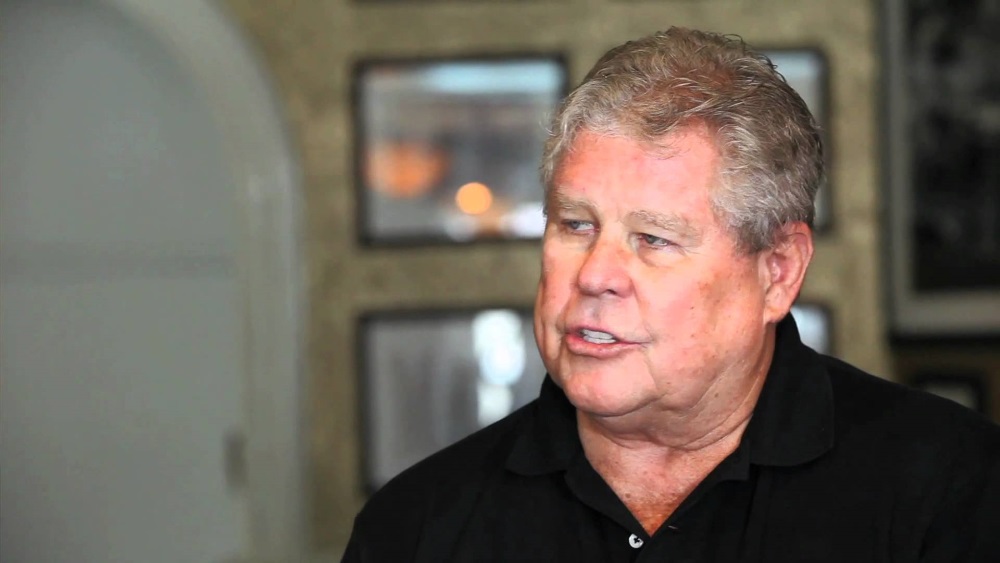

Beaches puts former Premier on blast about controversial pier
-
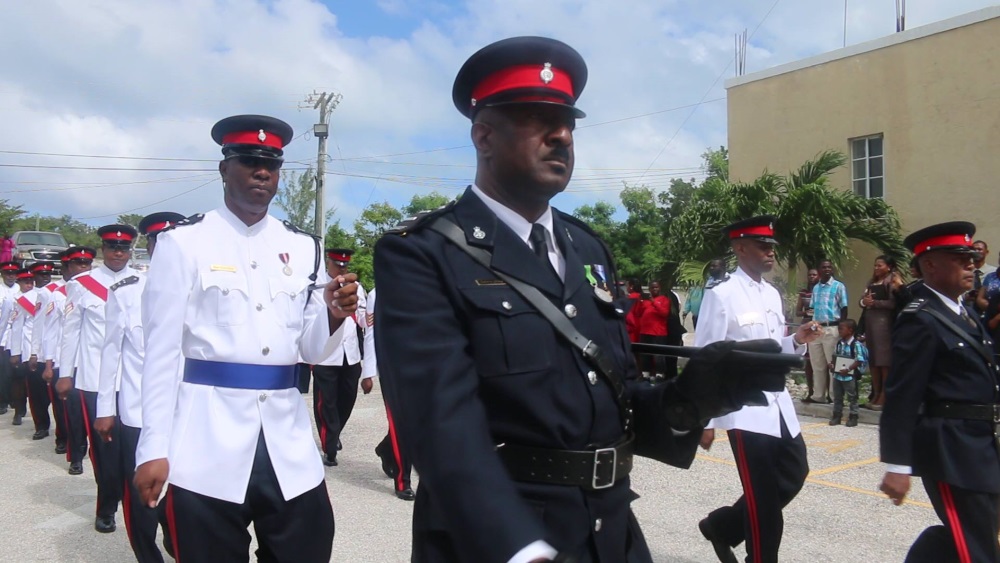

Bishop says peace & prosperity is everybody’s responsibility at Law Enforcers Church Service
-
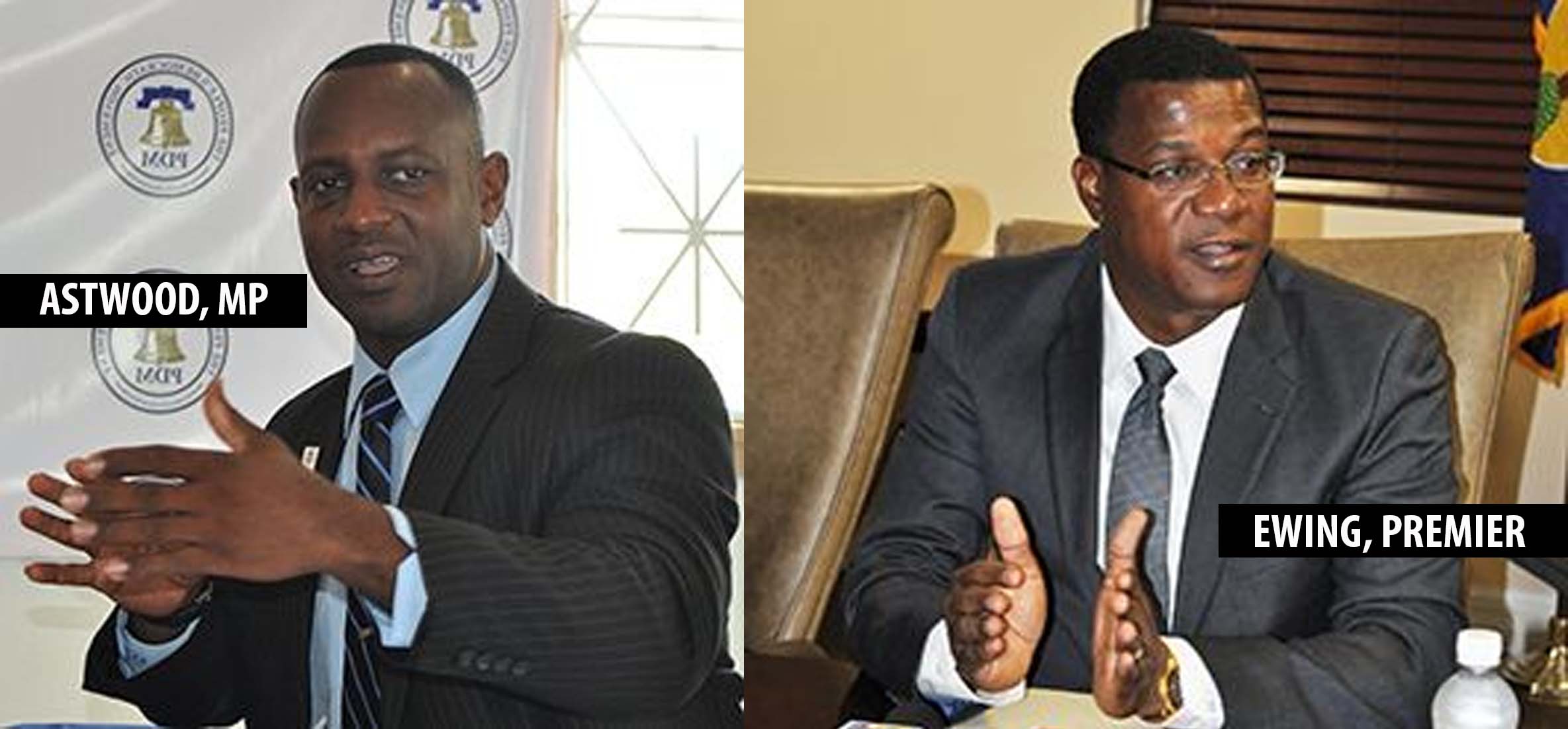

Row over Grand Turk infrastructure reaches fever pitch in Parliament
-
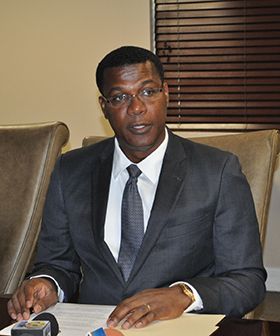

TCIG ready to spend to stop Zika
-


Grand Turk vandals warned
News
Commonsense, Not Confrontation: Why Kamla Persad-Bissessar Is Right
Published
1 month agoon
December 27, 2025
This debate did not start with Donald Trump, and it did not start this month.
For more than a decade, this reporter has had a front-row seat to repeated, urgent calls from across the Caribbean for stronger intervention by the United States in response to gun- and narcotics-fuelled violence that has hollowed out our communities. Long before today’s headlines, leaders warned that transnational gangs were outgunning police, draining public resources and stealing our youngest people.
Much of the public messaging leaned toward calls for fewer guns flowing from the United States, but the practical response from Washington evolved into something else: tactical undergirding of the Caribbean. Training, intelligence sharing, maritime surveillance and joint operations expanded under successive U.S. administrations — Republican and Democrat alike.
Then came Venezuela.
President Nicolás Maduro proved himself an unhinged and destabilising force, openly threatening Guyana’s oil-rich territory and pushing the region to the brink of a conflict no Caribbean state could afford. The United States showed up. The threat of war was blunted. That mattered.
But while geopolitical flames were contained, the narcotics trade exploded.
CARICOM convened emergency meetings on transnational gang violence. Crime became so pervasive that it was formally classified as a public health threat. Entire communities were terrorised. Courts clogged. Police forces stretched beyond capacity.
And now — quietly but noticeably — the tempo has shifted.
While no single forensic study can capture the full picture, it is easily verifiable on the ground that major narcotics busts and trafficking activity have slowed in recent months. Something has changed. Pressure works.
This is the reality Prime Minister Kamla Persad-Bissessar is responding to.
Her critics accuse her of breaking ranks. What she is actually doing is refusing to indulge in strategic hypocrisy — demanding international help to confront narco-terrorism while appearing to defend or excuse the very networks and actors we have spent years condemning.
Sovereignty is not an insult. The Caribbean invokes it constantly. To deny it to the United States — especially when the policies in question were telegraphed months in advance and remain adjustable — is not diplomacy. It is posturing.
What is most troubling is the region’s selective memory. CARICOM has directed months of rhetorical fire at Trump-era policies, yet when disaster struck — from security crises to Hurricane Melissa — the United States remained one of the region’s most reliable supporters. Outcomes matter more than allegiance theatre.
Kamla Persad-Bissessar is not suffering from Trump Derangement Syndrome. She is applying commonsense statecraft. She understands that small states do not gain leverage by moral outrage alone, and that credibility is lost when we appear aligned with individuals, regimes or activities we ourselves have deemed a threat.
Her warning to CARICOM is simple and necessary: do not undermine your own cause.
The Caribbean’s fight against narco-violence, corruption and instability has been long, costly and painful. If pressure is finally producing results, we should be wise enough to recognise it — and brave enough to say so.
Angle by Deandrea Hamilton. Built with ChatGPT (AI). Magnetic Media — CAPTURING LIFE.
News
Beaches Turks and Caicos Showcases and Supports Local Creativity
Published
5 months agoon
September 12, 2025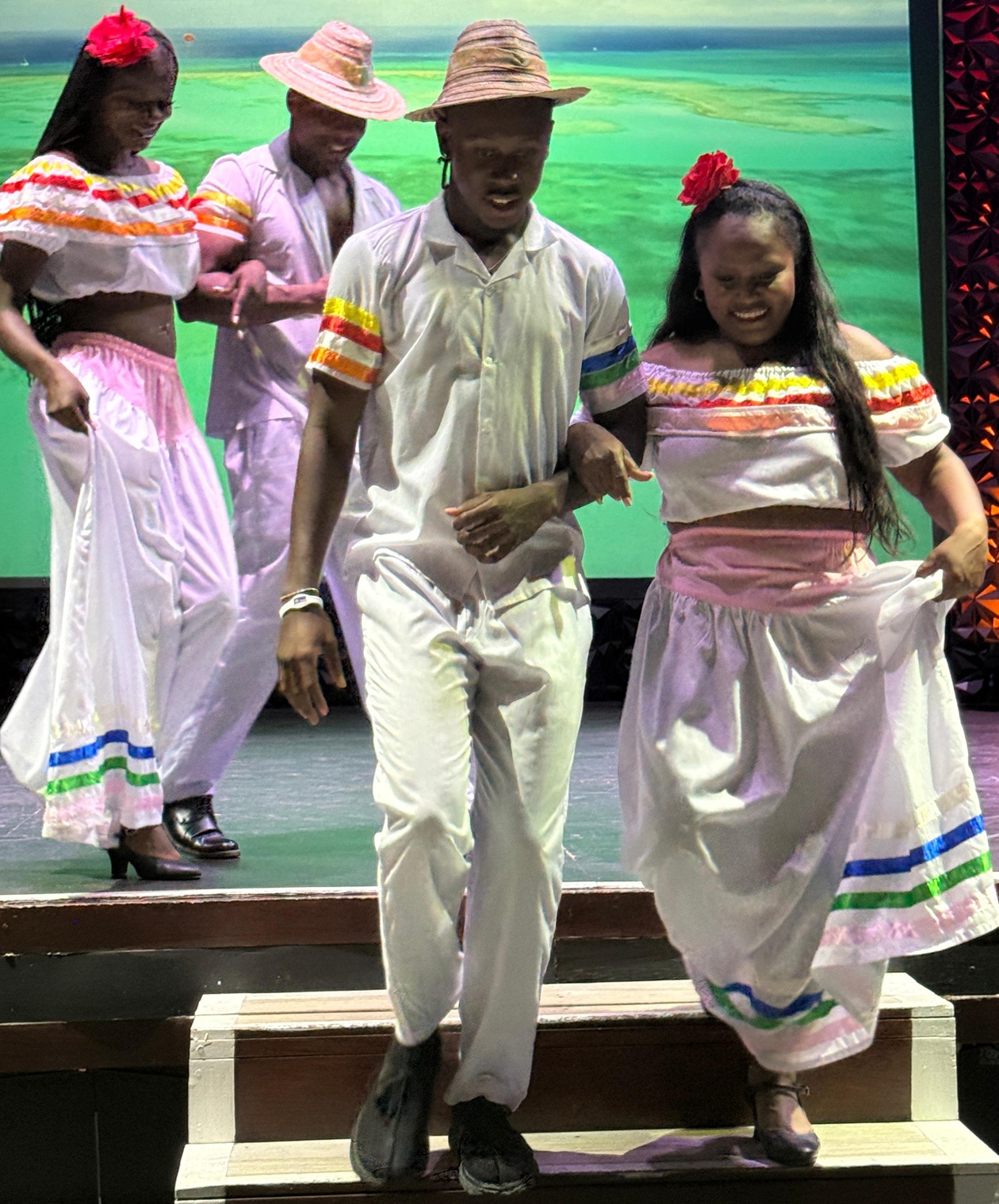
September 12, 2025
PROVIDENCIALES, Turks & Caicos Islands – The Turks and Caicos Islands are home to a wealth of creativity, from artisans and craft vendors to musicians and performers. Beaches Turks and Caicos, the Caribbean’s leading all-inclusive family resort, has pledged its continued support for these individuals by providing meaningful platforms for them to share their skills and stories with guests from around the world.
The resort’s commitment is most evident in its weekly Cultural Night showcase, where visitors are immersed in the vibrant traditions of the islands. Guests enjoy live performances which feature local music genres such as ripsaw, while artisans display and sell handmade creations. This event not only enriches the guest experience but also strengthens economic opportunities for local entrepreneurs.
Entertainment Division Manager Garett Bailey emphasized the significance of Cultural Night, “we want to showcase everything the Turks and Caicos Islands culture has to offer. Our goal is for guests to leave with a deeper appreciation of the island’s art, music and traditions, while giving local talent the opportunity to share their creativity with visitors from across the globe.”
Beyond Cultural Night, Beaches Turks and Caicos also welcomes local craft vendors onto the resort every Wednesday and Friday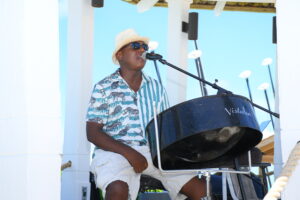 where they are offered a direct space to market their goods. Guests have easy access to the Turks and Caicos Cultural Marketplace, where they can purchase authentic local arts and crafts.
where they are offered a direct space to market their goods. Guests have easy access to the Turks and Caicos Cultural Marketplace, where they can purchase authentic local arts and crafts.
Managing Director, James McAnally, highlighted how these initiatives reflect the resort’s broader mission, “we are committed to celebrating and sharing the vibrant culture of these islands with our guests. By showcasing local artistry and music, we not only provide entertainment but also help sustain and grow the creative industries of the Turks and Caicos Islands. From our cultural showcases to nightly live music, we are proud to create authentic connections between our guests and the people of these islands.”
Local musician Keon Hall, who frequently performs at the resort, expressed gratitude for the ongoing partnership, “being able to share my music with Beaches’ guests has created lasting relationships. Some visitors return year after year and request songs from previous performances. This partnership continues to celebrate what we do and strengthens the bond between local artists and the resort.”
The resort’s support of local artisans and entertainers extends beyond business opportunity; it is about preserving heritage and sharing stories. Guests take home more than souvenirs; they leave with experiences that deepen their understanding of Turks and Caicos’ culture and history.
Public Relations Manager, Orville Morgan, noted the importance of this commitment, “for many visitors, these interactions represent their first genuine connection to the Turks and Caicos Islands. From artisans and musicians to farmers and transport operators, our local talent helps shape every guest experience. At Beaches, we are proud to give them the stage to share their stories and their heritage.”
Beaches Turks & Caicos remains dedicated to developing cultural connections and supporting the artisans, musicians and entrepreneurs whose creativity makes the Turks and Caicos Islands unique. Each guest experience is an opportunity to celebrate and sustain the spirit of the islands.
Caribbean News
“Barbecue” is Cooked! US Turns Over 11 Million Haitians into Potential Informants with $5 Million Bounty
Published
6 months agoon
August 12, 2025
August 12, 2025
The United States just set fire to the underworld in Haiti — and this time, the smoke might finally flush out the man many call the most feared in the Caribbean.
On Tuesday, the U.S. government slapped a $5 million bounty on the head of Jimmy “Barbecue” Chérizier, the ex-police officer turned gang boss accused of orchestrating massacres, torching neighborhoods, and strangling Haiti’s capital into chaos. This isn’t just a headline — it’s a full-blown game-changer.
turned gang boss accused of orchestrating massacres, torching neighborhoods, and strangling Haiti’s capital into chaos. This isn’t just a headline — it’s a full-blown game-changer.
That kind of cash — offered under the State Department’s Transnational Organized Crime Rewards Program — is enough to turn the country’s entire population, more than 11 million people, into potential informants overnight. Add the millions in the Haitian diaspora, and Chérizier isn’t just wanted. He’s surrounded.
The Number That Changes Everything
Five million U.S. dollars today equals about 655 million Haitian Gourdes. In a country where many scrape by on less than $5 a day, that’s not just life-changing — it’s life-defining. It’s enough to rebuild homes, put generations through school, or buy a one-way ticket far from the gunfire.
In a place where trust is scarce and survival is everything, that figure is more than tempting — it’s irresistible. For Chérizier, it means every friend could be a future informant, and every loyalist might be calculating the cost of staying loyal.
‘We Will Find Them’ — Jeanine Pirro, U.S. Attorney
Jeanine “Judge Jeanine” Pirro, the U.S. Attorney, set the tone with fire in her voice. “This indictment is the first of its kind,” she announced. “Jimmy Chérizier, also known as ‘Barbecue,’ is a notorious gang leader from Haiti who has orchestrated and committed various acts of violence against Haitians, including the 2018 La Saline attack in which approximately 71 people were killed. He both planned and participated in that massacre.
“Anyone who is giving money to ‘Barbecue’ cannot say, ‘I didn’t know.’ They will be prosecuted, and we will find them. They are supporting an individual who is committing human rights abuses, and we will not look the other way.”
Pirro wasn’t just going after Chérizier. She was sending a warning to the Haitian diaspora accused of feeding his war chest from abroad: the days of claiming ignorance are over.
‘No Safe Haven’ — Darren Cox, FBI
Then came Darren Cox, Deputy Assistant Director of the FBI, delivering the muscle of America’s most powerful investigative force. “There is no safe haven for Chérizier and his network,” Cox declared. “We are closing every link, every cell.” Since January, he said, the FBI has arrested three Top Ten fugitives, taken more than 19,000 criminals off the streets, and seized thousands of tons of narcotics — enough to save millions of lives across the U.S.
The FBI’s Miami and Houston offices have already bagged one of Chérizier’s Viv Ansanm associates inside the United States without firing a shot. “These efforts are a deliberate and coordinated plan,” Cox said, “to protect our communities and confront escalating threats from terrorist organizations like Viv Ansanm.”
‘Three-Year Investigation’ — Ivan Arvelo, HSI
Ivan Arvelo, Assistant Director of Homeland Security Investigations, brought the receipts. “This is the result of a three-year investigation into Chérizier’s procurement networks, cash pipelines, and operational financing that violates sanctions,” he explained. Arvelo described 400 structures destroyed, entire communities erased, and a gang exploiting U.S. dollars, technology, and immigration loopholes to keep its killing machine running. “We tracked how Americans unwittingly bankrolled brutality,” he said — proof that the net is tightening both inside Haiti and abroad.
‘The Worst of the Worst’ — Chris Lambert, State Department
Chris Lambert, representing the State Department’s International Affairs division, gave the political bottom line.
“Mass violence in Haiti must end,” Lambert said. “The instability resulting from Chérizier’s actions fuels illegal migration, regional instability, and transnational crime. We will continue to apply every tool available — including our rewards programs — to stop the spread of unchecked violence, especially to target the worst of the worst criminal leaders threatening the people of our hemisphere.”
instability, and transnational crime. We will continue to apply every tool available — including our rewards programs — to stop the spread of unchecked violence, especially to target the worst of the worst criminal leaders threatening the people of our hemisphere.”
Lambert confirmed what many have long known: Chérizier is not just a gang leader. He commands Viv Ansanm, officially designated in May as a Foreign Terrorist Organization. In the eyes of the U.S., that makes him not just Haiti’s problem — but everyone’s.
Why Haitians May Not Resist
In Haiti, money talks — loudly. And when you put 655 million Gourdes on the table, it shouts.
That’s the kind of figure that turns casual acquaintances into informants and makes even the most hardened loyalist wonder if the payout is worth more than the risk. It’s not a matter of “if” word gets out, it’s a matter of “who will be first to collect.”
For grieving families, it’s a chance at justice. For the desperate, it’s a chance at survival. For Haiti as a whole, it’s hope — wrapped in the most dangerous of temptations.
An Answer to Prayers
For years, Haiti’s headlines have been a scroll of horrors — kidnappings, executions, burned neighborhoods, bodies in the streets. Chérizier’s name has been attached to too many of them.
This move by the U.S. isn’t just strategy. It’s personal. It’s a signal to every Haitian — at home or abroad — that the days of impunity could be ending.
I’ll admit it: when I heard the news, I danced, I sang, and I nearly cried. Not because $5 million is a lot of money, but because of what it means — the possibility, at last, of stopping the man accused of helping turn Haiti into hell on earth.
Four officials, four angles, one mission: Pirro’s fire, Cox’s grit, Arvelo’s precision, Lambert’s conviction. Together, they’ve put the heat on “Barbecue” like never before.
BBQ is cooked. The only question now is: which one of over 11 million potential informants will serve him up?




